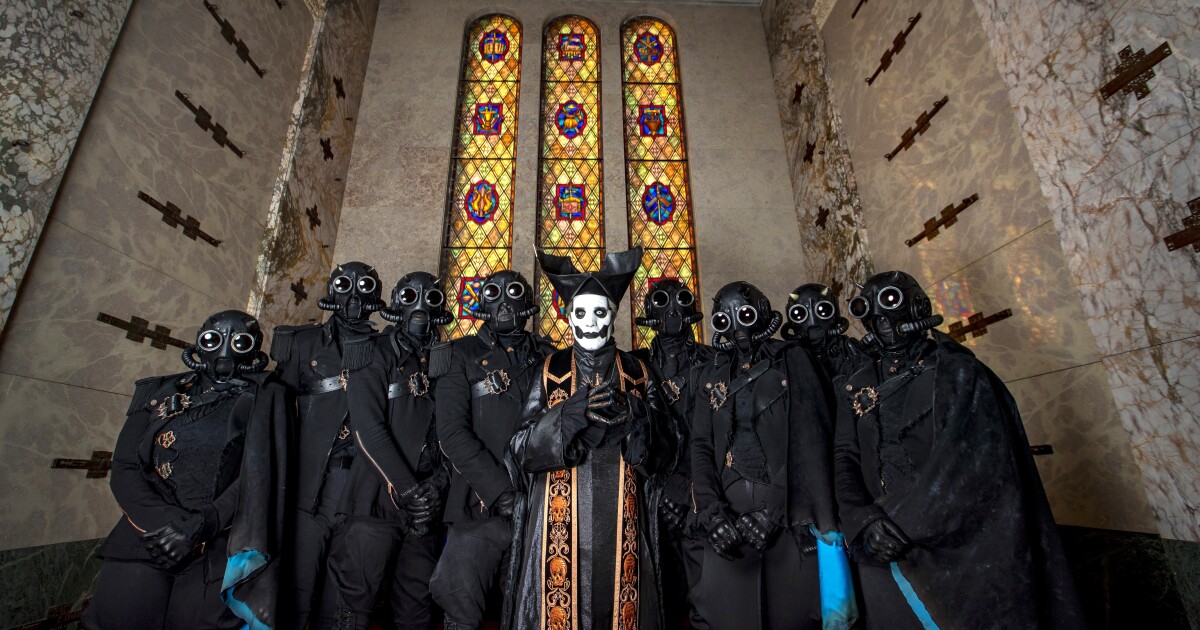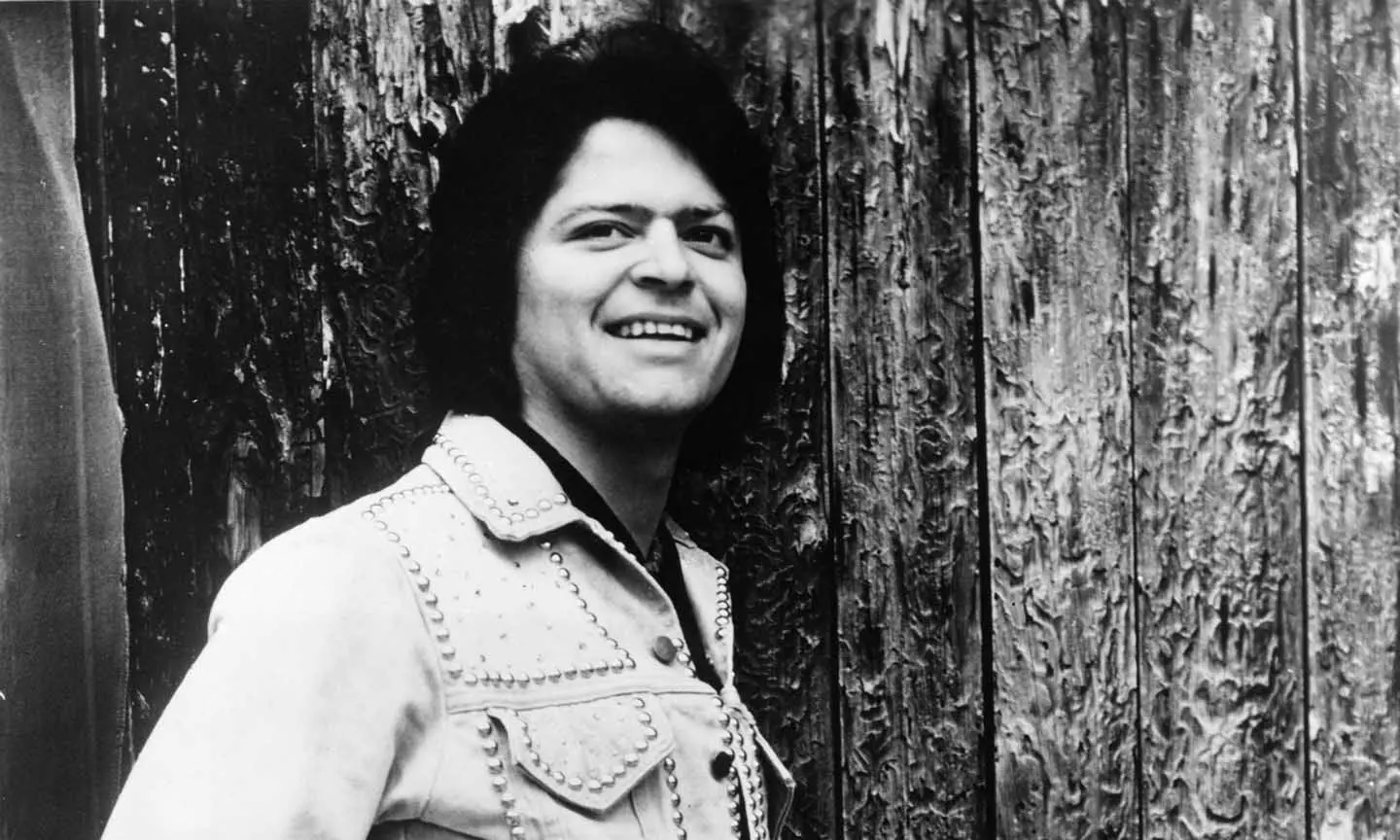Are NFTs the New Napster? This time the music industry is taking no risks
/https://specials-images.forbesimg.com/imageserve/61155baecc5118235bb18e10/0x0.jpg?cropX1=0&cropX2=1920&cropY1=0&cropY2=1080)
[ad_1]
Kings of Leon’s adoption of NFTs was a wake-up call to their record company and the music industry, which is now fighting to avoid the same mistake that almost killed it 20 years ago.
Mn more than two decades after the release of his debut album, Kings of Leon has been honored at the Rock and Roll Hall of Fame. But what brought the southern-influenced rock band to Cleveland last April wasn’t their music; it was his non-fungible token (NFT) called “NFT Yourself”.
The digital tokens went on sale in March for the ethereum equivalent of $ 50 apiece, and included a copy of the band’s latest album, a one-off piece of art, behind-the-scenes passes, a disc of single gold and musical excerpts. During the two weeks of availability, KoL moved 6,500 copies of “NFT Yourself” for a total of $ 2.2 million, including six “Golden Tickets” sold for an average price of $ 100,000. These extra special NFTs included lifetime access to one VIP concert at one show per tour, with driver. Since the initial two-week offering, NFTs have generated an additional $ 246,000 in aftermarket sales, with the group raising 10%.
The Kings of Leon band members – Nathan, 42, Caleb 39, Matthew 37, and Jared Followill, 35 – pose in front of an exhibit of their NFT at the Rock and Roll Hall of Fame in Cleveland, Ohio in April 2021.
Courtesy RRHOF
While financial performance has not been revolutionary, the ripple effects are being felt throughout the music industry.
“The record deals have lost their value in a way,” said Nathan Followill, Kings of Leon drummer, 41. “Today a kid can record a disc on GarageBand and stream it to TikTok or stream it as NFT or in any form. It’s almost like they don’t need to rely on the recording industry as much as they used to, which in turn, I think, freaks out the recording industry.
Most people are familiar with NFTs because of the craze this spring surrounding a few digital art auctions. In March, Beeple (real name Mike Winkelmann) captured the world’s imaginations when he sold a 5,000 .jpegs collage at Christies for a staggering $ 64.9 million. Musical NFTs are no different, except that in addition to illustrations, they are accompanied by audio files like the MP4s sold by Kings of Leon.
Justin Blau turned down an internship with asset manager BlackRock to pursue a career as a DJ. He sees NFTs as the perfect blend of music and finance.
Slaven Vlasic / Getty Images
“NFT Yourself” hasn’t been a huge financial success for the Kings of Leon: at its peak in 2008, the group, which consists of three brothers and a cousin, made around $ 10 million on their multi -platinum “Only by the Night” album. But “NFT Yourself” marked the first time that a mainstream act fully embraced NFTs, and depending on your perspective, it was either a revolution, a lucrative publicity stunt, or the last breath of life. collapse of the traditional music industry for decades.
Other acts have done much better with the NFTs. Superstar DJ Justin Blau (aka 3lau) has sold NFT for $ 20 million since he started broadcasting them last fall, after teaming up with surreal artist Mike Parisella (aka SlimeSunday) and selling 33 NFT’s limited edition release from their latest album, Ultraviolet, which featured animated artist videos synced to Blau’s music.
“The model I’m working on is supposed to be a reverse recording contract,†says Blau, who is 30 and has worked with artists like Rihanna, Katy Perry and Ariana Grande. Instead of what he called the 80% “predatory†that most labels charge, he plans to fund production costs by selling directly to fans. His team are now in talks with Billie Eilish, Madonna and Metallica, and are gearing up for what they hope will be the first blockchain music auction to be held at Christies, the London auction house.
Beyond the money directly earned by selling NFTs, digital tokens – each unique and cryptocurrency-like, tradable on a blockchain – also provide a direct and permanent link to the super fans who hold them. Even though the buyers are just anonymous numbers floating in the blockchain ether, bands can use them to market – and sell – new music, cool artwork, concert tickets, and merchandise. . Done well, NFTs offer the ease and ubiquity of Internet distribution (think Napster) but with built-in digital rights protection (think iTunes).
This sparked a growing effort to capitalize on the opportunity. Kings of Leon used Yellowheart, a New York-based blockchain startup founded by Nashville music veteran Joel Katz, to sell “NFT Yourselfâ€. But the group had other options. Andrew Gertler, who represents singer Shawn Mendez, recently joined Jay-Z and Andreessen Horowitz in a $ 19 million investment in Bitski, which is building a new NFT platform for music. In May, Miami-based OneOf raised the biggest NFT music rounds to date, $ 63 million, to create an energy-efficient market to sell rare music by Whitney Houston, Quincy Jones and John Legend. Famous investors are flocking. Mark Cuban and Ashton Kutcher joined a $ 4 million investment in the NFT Genius music market in June.
Actor-investor Ashton Kutcher, rapper-entrepreneur Jay-Z, and venture capitalist Mark Cuban have all invested in NFTs as a means of distributing music.
Terry Wyatt / Getty Images, Kevin Mazur / Getty Images, Michael Cohen / Getty Images
It has also given a boost to record companies, which view the rise of NFTs as possibly more dangerous than the pirated MP3s that plunged the industry into a death spiral 20 years ago, but also potentially as miraculous as the streaming technology that has since revived it. : Since 2007, recorded music revenues have jumped 35% to nearly $ 40 billion, where they were at the CD-fueled peak it reached in 1999, according to entertainment research firm Midia . A few weeks after the release of “NFT Yourself”, the executives of Kings Of Leon’s label, Sony / RCA, set up a task force to train in NFT, with similar efforts taking root in each of the big three companies. musicals, including Sony Music, Warner Music Group and Universal Music Group.
“One of the things that caused the downfall of the music industry is that we are very competitive against each other,†says Oana Ruxandra, chief digital officer at WMG. “And then the technology comes along and they eat our lunch, and we’re still competing with each other and not talking.” Noting the obvious change in the power dynamics represented by NFTs, she added, “Any development warrants an assessment and evolution of artist contracts. “
As long as they can fix the problems. Yellowheart took a fraction of what a label would have charged to run the Kings of Leon NFT, but it had issues with its technology. Yellowheart had no music player and no way to support NFT encrypted audio files. Instead, he distributed unprotected MP4 files of the band’s new music which can now be easily hacked and shared. Then there were the fees common to Ethereum transactions which cost some fans an additional $ 90 on top of the NFT’s $ 50 cost. All of this in the midst of a larger NFT market experiencing extreme volatility. After peaking in May, when $ 294 million worth of NFT Ethereum was sold in a single week, their market fell 75% in June, according to data site NonFungible.com, before climbing back to $ 302 million. dollars in July.
“I would say that in the next 10 years, 70% of the albums will be released in NFT form,†says Kings of Leon’s Followill, who describes himself as the band’s resident cryptogeek. Speaking to the press at the NFT Hall of Fame unveiling, a digital image of himself flashing in the background, he shrugged: Right. “
[ad_2]









